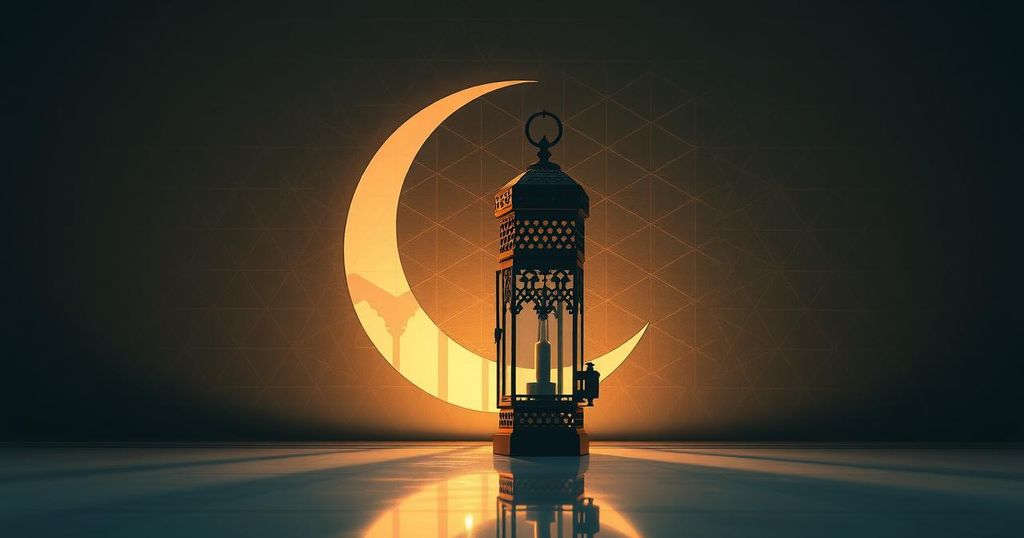Muslims in the Middle East are observing Ramadan under political upheaval, notably in Syria and Gaza. This year marks the first Ramadan for Syrians without the Assad regime, amidst ongoing destruction and poverty. In Gaza, families continue to celebrate amid ruins, relying on community support while hoping for peace. Despite challenges, the month remains a time for reflection, community, and resilience.
Muslims in the Middle East are observing Ramadan under exceptional circumstances marked by political upheaval and postwar challenges. This holy month, traditionally a time of reflection, prayer, and community gatherings, sees families engaging in fasting from dawn until dusk. The festive atmosphere continues, albeit overshadowed by recent conflicts, with communities lighting decorations and hosting events in their localities, reflecting their resilience even in troubled times.
For many Syrians, this Ramadan is particularly significant as it is their first without the Assad regime dominating the political landscape for over fifty years. Following a swift insurgency in December that ousted President Bashar al-Assad, initial feelings of hope have been tempered by the extensive aftermath of war. The destruction incurred from a decade of violence has resulted in crippling poverty, affecting approximately 90% of the population.
In Damascus, the atmosphere is changed as citizens navigate markets adorned with the new flag, devoid of Assad’s images. Families gather in the ruins of their homes for iftar meals, arranged by charitable organizations, emphasizing the communal aspect of their faith amid disillusionment and ongoing challenges. In this environment, the interim government is appealing for the lifting of international sanctions to facilitate rebuilding efforts and revitalize the economy.
In the Gaza Strip, Palestinians are observing Ramadan for the second time since the conflict between Israel and Hamas escalated. This year, hopes are tenuous, hinging on a fragile ceasefire to provide some stability. Many citizens are enduring hardship as they rely heavily on humanitarian assistance amid widespread destruction.
In Rafah, post-military operations have left considerable damage, yet residents are finding ways to celebrate. Strings of lights have been hung across ruined buildings, and community members gather for sunset iftar meals, symbolizing resilience and unity. In northern Gaza, families are improvising modest dinners in their damaged homes, reflecting a stark contrast to the larger, more communal meals of previous years.
This year’s Ramadan in the Middle East serves as a poignant reminder of resilience amidst political and social turmoil. With Syria experiencing its first Ramadan without the Assad regime, and Gazans continuing to navigate the ramifications of conflict, the observance of this holy month underscores the importance of community and hope. Families and communities are finding ways to celebrate despite the adversities they face, seeking solace and solidarity in their faith.
Original Source: www.voanews.com




